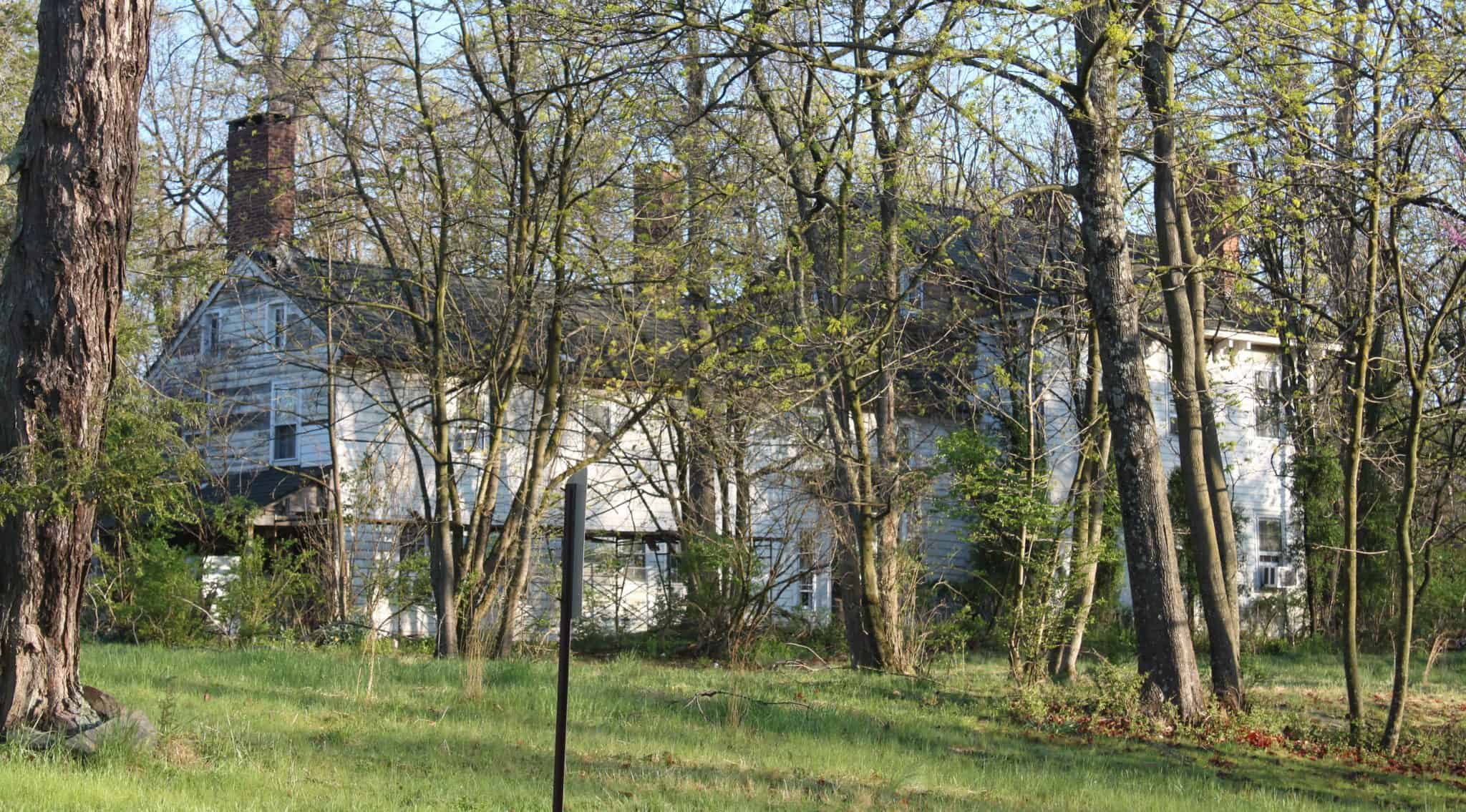The Municipality of Princeton and the owner of the historic Greenland-Brinson-Gulick House have come to a settlement agreement for a municipal lawsuit filed against the owner for failure to repair the 339-year-old house.
The settlement agreement – reached earlier this month between the town and owner Benjamin Gulick and his wife, Jeanette Gulick – was approved by the Princeton Council at its Aug. 8 meeting.
At the center of the dispute is the home at 1082 Princeton-Kingston Road, near the corner of River Road. The house is historically significant because it was built by Henry Greenland in 1693. The earliest part of the house is hidden by a Victorian-era bay window in the middle section of the house.
The house, which has been expanded several times, was acquired by Major John Gulick in 1797 and has remained in the Gulick family for 225 years. Gulick fought in the American Revolutionary War and the Whiskey Rebellion. He is buried in the nearby Kingston Presbyterian Church cemetery.
Benjamin Gulick and his wife, Jeanette Gulick, who are the present owners of the house, agreed to sell 28 acres of the 40-acre Gulick Farm property to the former Princeton Township for $2.7 million for parkland and preservation purposes in 2002.
The deal between Princeton and the couple called for setting aside $600,000 in a restoration account to pay for the restoration and/or preservation of the house and outbuildings. The outbuildings included a barn, a carriage house and a smoke house.
Gulick was named to be the account manager and construction manager/supervisor. He was required to complete the restoration within 24 months of the issuance of the first building permit, and to complete work on the outbuildings 18 months later.
Fast-forward 20 years, there have been no repairs made to the house or the outbuildings. There is peeling paint on the house, and the decorative trim over the front door is missing. Scaffolding has been in place for many years in front of one wing of the house.
After repeated pleas with Gulick to spend the money, Princeton sued him in October 2021 to force him to make the repairs. Over the past 20 years, he had spent down the $600,000 in the restoration account to about $130,000. He used the money for other purposes, such as paying property taxes, according to the lawsuit.
Gulick and the town subsequently reached a settlement agreement through mediation earlier this year. The settlement agreement requires the restoration project to be completed within one year, although the timeline may be extended if necessary.
The settlement agreement calls for Gulick to sell a building lot, which was created in 2002, to generate money to replenish the restoration account. The building lot must be listed for sale at a minimum price of $450,000.
The money from the sale of the building lot will be deposited in the account, minus $10,000 for Gulick’s use and after paying the capital gains tax. If the sale of the lot does not generate enough money to replenish the account up to $600,000, then he will be responsible for making up the shortfall, according to the agreement.
To ensure there is enough money to complete the restoration project, the agreement calls for Gulick to give Princeton the deed transferring ownership of the house and land to the town. The deed will be held by the town, pending restoration of the house.
If Gulick cannot fund the entire restoration project and complete it within the one-year timeline, Princeton will record the deed and take ownership of the property. The town will sell the Gulick property, subtract the cost of the sale and capital gains tax, and keep enough money to complete the restoration project. If there is money left over, it will be turned over to Gulick, according to the agreement.
The assessed value of the historic Gulick house and the two-acre lot on which it sits is $703,000. An additional 9.6-acre lot that is part of the property is assessed at $6,500 under farmland assessment status, according to the Princeton Tax Assessor’s Office.
The assessed value and the market value of a property are not always the same, officials said. The market value, or sales value, may be more than the assessed value.
Under the settlement agreement, Gulick will resign as the account manager. Princeton will appoint an account manager, who will have access to the restoration account to pay for work on the house and outbuildings.
Gulick will remain as the construction supervisor, but he will work with a second construction supervisor appointed by Princeton. The town-appointed construction supervisor will have the final decision-making authority on all construction and restoration issues at the Gulick property, according to the agreement.

